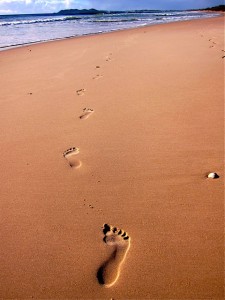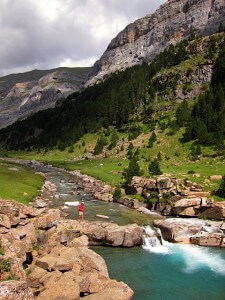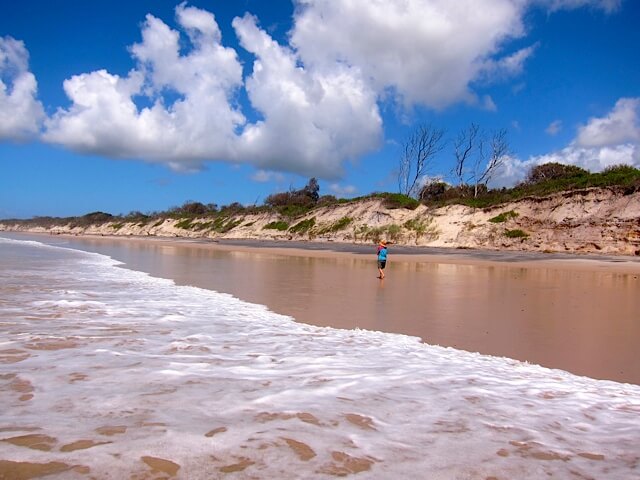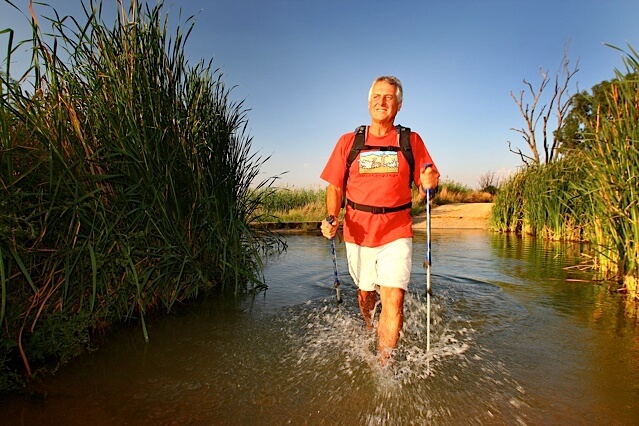By Geoff Dalglish, Trail to Salamanca
“Earth Pilgrim” Geoff Dalglish and others hiked the Trail to Salamanca from Geneva, 2500km (1500 miles) across four mountain ranges in six countries over 125 days, to arrive in Salamanca just as delegates gathered from all other the world for WILD10, the 10th World Wilderness Congress. All along the Trail, Geoff was joined by other hikers from local villages and organizations as they experienced and explored the re-emergence of ecological corridors and the return of wildlife across Europe.
“The future will belong to the nature-smart – those individuals, families, businesses, and political leaders who develop a deeper understanding of the transformative power of the natural world and who balance the virtual with the real. The more high-tech we become, the more nature we need.”
-Richard Louv, author of The Nature Principle
“Thank you for massaging the Earth with your footsteps. I’m sure Father Sky is looking down and appreciating what you are doing for our beautiful Mother.”
The words, accompanied by an unexpected hug, were uttered a few months ago by Howie, an Aboriginal elder who had often observed me returning from my early morning meditative walks along the beach near the Australian mainland’s most easterly point.
His thanks echoed my own gratitude for his gentle and loving presence and reminded me that feeling our oneness with the natural world is the way we used to live when we readily recognised our kith and kin in the animals, birds, plants and all life surrounding us.
While each of us is different I’m convinced that we all benefit from time outdoors, and I know that being in nature is good for me physically, emotionally and spiritually. I feel love and joy welling up in me, and my mind’s busyness is replaced by a deep calm and clarity. I need this – we all do.
 These days much of my personal journey is about trying to reconnect others to the magnificence of the natural world, which so inspires me. With that love of wild nature comes humility, empathy and compassion, which are building blocks for better relationships with our world.
These days much of my personal journey is about trying to reconnect others to the magnificence of the natural world, which so inspires me. With that love of wild nature comes humility, empathy and compassion, which are building blocks for better relationships with our world.
The poet William Wordsworth once wrote: “What you have loved, others will love, and you will teach them how.”
Lately I’ve also been intrigued to read about ‘Earthing’, a concept that involves aligning your body to the Earth’s surface energies, ideally by walking barefoot outside. The idea is that if your energy is resonating with that of the Earth’s, your body will be at a more natural state, which is energising and healing.
In a return to my childhood I’ve found myself walking barefoot more and more, but recently when my journey took me to Switzerland at a time of heavy, unseasonable snowfalls, I reluctantly had to resort to wearing trainers again. As I walked the Trail to Salamanca and the WILD10 world wilderness congress, I noticed how incredibly good it felt to remove my footwear and be barefoot during rest stops each day. It wasn’t just about cooling overheated and overworked feet, but about connecting with the Earth. I tried to do it often.
Walking can also be a reminder of so much our ancestors intuitively understood. And maybe many things we knew as children. Today we’re suffering from a numbing disconnection from other life. It is what my animal whispering friend Anna Breytenbach describes as a “disconnection sickness.”
On the rare days I don’t walk, I feel somehow less capable of meeting whatever challenges arise. And it is only since I’ve slowed down to a pace similar to that of my hunter-gatherer ancestors that my senses have become truly alive. I use them all to see, hear, smell, taste and touch the miracle of life. For countless centuries the very survival of our nomadic forebears was intrinsically interlinked with the cycles of the natural world. They were guided by the stars, seasons and weather patterns, as well as the movements and migrations of the creatures that they recognised as their kith and kin.
Now we are mostly insulated, anaesthetised, drugged and utterly disconnected from Gaia. We are surrounded by concrete, glass and steel and bombarded by technology and information-overload in a fast-paced world illuminated by artificial light and characterised by unnatural patterns of sleep and waking. We breathe polluted air, ingest chemical-laden products masquerading as food and invariably drive rather than walk. Depression, anxiety, confusion and hopelessness are the norm for pill-popping millions.
So what happened to our supposedly superior intellect and powers of reasoning?
Some 25 centuries ago, Hippocrates, the father of medicine, observed: “Illnesses do not come upon us out of the blue. They are developed from small daily sins against Nature. When enough sins have accumulated, illnesses will suddenly appear.”
Solutions, I believe, are all around us. We need to live simpler, more sustainable lives and find the peace and inspiration that comes from being in nature – from recognising our rightful place not as a controller of the natural world but a strand in the miraculous web of life.
We need to learn from the successful blueprint of nature, tapping into millions of years of accumulated wisdom, instead of pursuing a consumer-based materialistic madness, that if unchecked, can only result in our own extinction as a species.
Answers are all around us and they’re free.
 Scientists are discovering that children are suffering from what is being called a Nature-Deficit Disorder. They need to grow up in nature with animals around them, climbing trees, swimming in streams and lakes, and ideally feeling the Earth beneath bare feet.
Scientists are discovering that children are suffering from what is being called a Nature-Deficit Disorder. They need to grow up in nature with animals around them, climbing trees, swimming in streams and lakes, and ideally feeling the Earth beneath bare feet.
While I depend on my iPhone and MacBook Air to communicate with the world, I know that fundamental to my health and happiness is that connection. Nothing is more important than the solo meditative walk with which I start each day.
In her book Partnering with Nature, environmentalist Catriona MacGregor says: “This disconnection with nature can lead to physical as well as mental stress, from depression and fatigue to attention disorders and obesity. But by awakening a natural connection to the environment around us, we can move beyond simply using nature and into a true partnership with it.
“Ultimately, when we recognise the inherent sacredness of all life, we become forces for good in this world… nature has much to offer to all who will listen.”
(Geoff is Odyssey magazine’s pilgrim-at-large and this blog is based on a a feature commissioned by the integrated living publication www.odysseymagazine.co.za)



